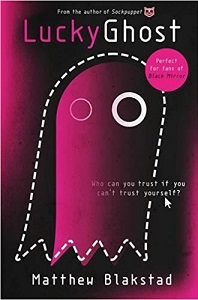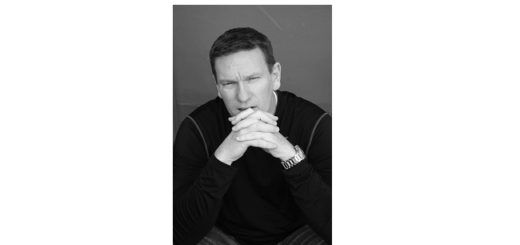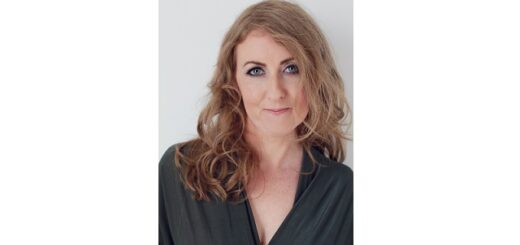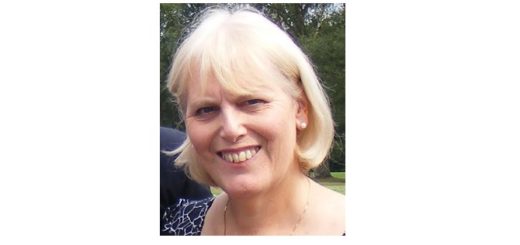The Writing Life of: Matthew Blakstad
Matthew Blakstad
This week on ‘The Writing Life of:‘ I am thrilled to be interviewing author Matthew Blakstad. Matthew will be sharing with us detail of his writing life, telling us all about his latest book ‘Lucky Ghost‘, which was released on 27th July 2017, and answering a few fun questions too.
So without further ado I’ll hand you over to Matthew. Post contains affiliate links.
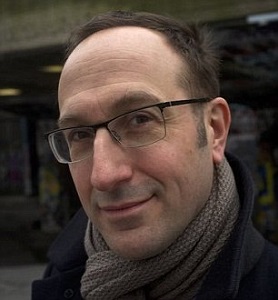
My first career was as a professional child actor. From the age of ten, I had roles in TV dramas on the BBC and ITV, in films and at theatres including the Royal Court. After graduating from Oxford with a degree in Mathematics and Philosophy, I began a career in online communications, consulting for a range of clients from the BBC to major banks.
Since 2008, I’ve been in public service, using my communication skills to help people understand and manage their money.
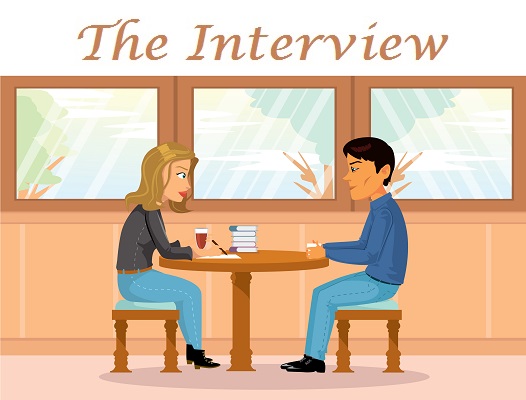
1) As a child what did you want to do when you grew up?
An actor. And for a while, that’s what I was – a professional child actor. It was something I stumbled into. The BBC came to my school when I was 9, auditioning young actors for a drama series called THE LOST BOYS (no, not the Kiefer Sutherland vampire film: I wish!) And I was cast in it.
From then on I did a string of roles in TV shows and films, through until my late teens. After which I started directing fringe theatre. I always assumed I’d continue acting or directing when I grew up. Problem was, I wasn’t good enough at either!
2) Who were your favourite childhood authors?
I was a nerdy reader. Writers like Asimov and Frank Herbert had a massive influence. Or any book that created a big, rich, speculative world that I could get lost in. And even though, as I got older, I started to read a really eclectic range of books, this early passion for genre has embedded itself in my taste, and in my writing.
3) At what point in your life did you realise you wanted to be a writer?
Relatively late. I first tried to write a novel in my early thirties, when I got made redundant from my job. I had a lot get out of my system. But the book ended up long and a bit incoherent and preachy and when I realised this I was put off writing for a while, though I kept on feeling it was something I wanted to do.
In my mid-40s the bug bit again and I started writing SOCKPUPPET, which ended up being my published debut. In retrospect I shouldn’t have been put off by early failure. I should have pressed on. I don’t know whether it’s true that we all have a good novel in us – but if we do, it’s most likely buried under one or two really terrible novels. And you have to get the bad novels out before you’re allowed to write the good one. Perseverance is everything.
4) How did you go about following that dream?
It was my wife who wisely realised I needed a kick-start to get back to writing in earnest, and she suggested I take the Faber Academy Writing a Novel course. That’s where I started writing SOCKPUPPET. It’s where I learned to be a better writer, and a better reader. I think this is the real power of this kind of course. It creates a trusting environment where a group of people can review and critique each other’s work.
90% of good writing lies in being able to turn an impartial eye on your own work, and edit it mercilessly. Learning to critique other people’s work is a fantastic way to train your editorial muscles. Half my Faber group still meets up every month, to review each others’ work. Four of us now have publishing deals, and others I’m sure will follow.
5) What is your writing day like? Do you aim for a certain amount of pages or words before you stop for the day?
I have a day job that keeps me busy Monday-Thursday. This doesn’t mean I never write on these days, but it means I need to find small snatches of time for writing – on the bus, in cafes, on my phone while walking between meetings. This is how I wrote my first novel, while holding down a busy full-time job. Now I’ve gone down to four days a week I have the luxury of a dedicated writing day every Friday (and a chunk of every weekend).
I don’t really have writing routine on these days, or set myself goals like wordcounts. I guess this is because I’ve never needed to. Once I have my thinking straight, I’m a compulsive writer, and quite a fast one. The great thing about spending four working days away from my manuscript is that, by the time I sit down at my desk on a Friday morning, I’m desperate to get started. So I’ve never experienced writer’s block, though I have to admit that some days are slower than others.
6) Did you ever consider writing under a pseudonym?
I did wonder about this when I first signed with Hodder. I’m a spokesperson for my employer and I thought they might have a problem with me publishing under my own name. I also thought it might be good to choose a name that people could actually spell! But in the end I realised I wanted to identify myself as the author of my work. Also my agent told me it’s a cool name. So I stuck with it.
7) Do you have any strange habits before starting, or whilst in the midst of writing?
None that I care to share! But no, I think my strangest behaviour happens AFTER I’ve done a full day’s writing. I feel really sorry for my wife, having to come home to me after I’ve done a solid 9 hour stint at my desk. It takes me at least a couple of hours to come back to the real world. Until then, she has to put up with me bumping into the furniture and being incapable of speaking in coherent sentences.
8) Do you write longhand, typewriter, or on a computer?
Always on a computer. I’ve always been quite fluent with tech, as I guess comes through in my books. Also my handwriting is so bad that even I can’t read it! I edit pretty constantly as I write. I’m always going back and tweaking things and knocking paragraphs around, until the rhythm and music of the writing is correct. So I value the fluidity of editing on screen.
Still, there comes a point later in the process where I do need to read the whole thing on paper. Freezing the words on a physical surface helps me think like a reader, rather than a writer. Sometimes I even go to a self-publishing website and order a one-off paperback copy of my draft, so I can read it exactly as a reader would.
9) How many books have you written? Do you have any unpublished work?
I’ve already published a full-length novel – SOCKPUPET- and a novella – FALLEN ANGEL. So when LUCKY GHOST comes out in July, it’ll be my second full-length book. All three titles are part of a series of standalone but interconnected stories called THE MARTINGALE CYCLE. I’m hoping there will eventually be five in this series. I’ve already written about two thirds of the next one. It’s called THIS IS TOMORROW, and it’s set among the political radicals and computer pioneers of the late 1960’s.
10) Are you a plotter or a pantser?
Both! I like to have an outline, which is usually about three pages of synopsis plus a set of character notes. This gives me the main beats that the story needs to follow. So I know I can bring it home safely as I write the first draft. But once I start writing, it’s largely improvisation.
I love getting my characters into difficult situations that even I don’t know the way out of, or confronting them with one another in a situation of conflict, and just seeing what they do, how they get out of it. I think the best writing – and most of the joy in the writing process – comes when you’re surprised at what your subconscious mind throws at you.
11) Do you read all the reviews left for your book(s)?
I read most reviews I come across. I love reading the positive ones, of course, but I think it’s important to read the negative ones, too.
Sometimes they’re just snarky, but I’m fine with that. It can feel hurtful to read criticism of the work you’ve sweated over for years, but people are entitled to express negative views about a book they’ve paid good money for. Also, reading nasty comments helps me build a thicker skin, which you really need as an artist. And a number of the more constructively critical reviews have been genuinely helpful.
I’m writing for an audience, after all, not just for myself. I genuinely want to know what people do and don’t like in my work. That doesn’t mean I’m going to change the way I write, just because some random on the internet told me to! But I do want to hear people’s perspectives.
Concerning your latest book:
The Martingale Cycle
Publisher – Hodder & Stoughton
Pages – 400
Release Date – 27th July 2017
ISBN 13 – 978-1473624757
Format – ebook, paperback, hardcover, audiobook

Early one morning, blogger Alex Kubelick walks up to a total stranger and slaps him across the face. Hard.
He smiles.
They’ve both just earned Emoticoin, in a new, all-consuming game that trades real-life emotions for digital currency. Emoticoin is changing the face of the economy – but someone or something is controlling it for their own, dangerous ends.
As Alex picks apart the tangled threads that hold the virtual game together she finds herself on the run from very real enemies. It seems only one person has the answers she seeks. Someone who hides behind the name ‘Lucky Ghost’.
But Lucky Ghost will only talk to a young hacker called Thimblerig – the online troll who’s been harassing Alex for months.
Will Lucky Ghost lead Alex and Thimblerig to the answers they seek – or to their deaths?
12) How long did it take you to get from the idea’s stage to your date of publication?
I wrote the outline of LUCKY GHOST in Summer 2015 but, because of other writing projects, I didn’t get start the first draft until January 2016. I finished editing in February 2017. So 14 months in the writing, but between first concept and publication, two years will have gone by.
13) How did you come up with the names for your characters?
They just come. I often try out four or five versions of a name until the right one presents itself. A name needs to have a flavour that conveys come quality of the character – be it spiky, curt, soft or elaborate. Also it needs to lend itself to the rhythm of the writing. Sometimes it takes a while to realise a name isn’t working.
For instance, there’s a tech entrepreneur called Sean Perce, who pops up in all three of my books. But when I first wrote SOCKPUPPET he had a completely different first name – Giles. (I confess to a Buffy reference there…) It was only when I was writing my second book, which flashes back to the character’s teenage years, that I realised the name didn’t work for this sulky working class kid obsessed with tech. So I changed it, and that meant we had to change the name in SOCKPUPPET, too, for consistency. Unfortunately by this point SOCKPUPPET was already typeset, which meant changing the manuscript very late in the day. Lucky my editor let me get away with this. And I don’t think there are any stray ‘Giles’-es lucking in the book. I hope not!
14) Can you give us an insight into your main character(s) life?, What makes them tick?
There are two main characters in LUCKY GHOST:
Alex Kubelick is an investigative journalist. She lives on adrenaline and is a compulsive gamer. She used to run a successful video blog, on which she’d confront corrupt business people and politicians – until last year, when she had a shocking confrontation with one of her targets. This, combined with a relentless campaign of online trolling, triggered a major breakdown. Now she’s trying to put her career and personal life back together, with the help of a virtual reality platform called the Strange, which allows her to live in a semi-fictionalised version of her own life.
Then there’s the young hacker known as ‘Thimblerig’. The defining moment in his life was during the Syrian civil war, when he was eight. He lost both his parents before making it north through mainland Europe, to the UK. The story’s set in the future, so he’s now 17. A reclusive and somewhat damaged character, he gets up to some pretty unsavoury stuff online – but he’s recently found a sense of purpose by joining a hacker protest movement – the same group we saw in SOCKPUPPET. His real motive, though, is to use his membership of this network to track down the US security contractor who was responsible for his father’s death, back in Aleppo.
15) Which was your hardest scene to write?
The ones that took the most work were the flash-backs to events in Thimblerig’s childhood, during the Syrian civil war. They were completely outside my own personal experience. As it turned out, in the editing process, these scenes were reduced to little more than snapshots, but it was still important to me that I based them on solid research. They definitely represent the largest amount of background work I’ve done, in proportion to the number of words that made it to the finished book!
16) How did you come up with the title of your book?
Again, it just came to me. ‘Lucky Ghost’ is the name of an anonymous online voice that has a crucial role in the story. The character name came first. After a while I realised that it also nicely reflected the themes and imagery of the book, so I tried it out as a title; and it stuck.
17) Did you get a family member/friend to read your work before sending to the publishers?
Yes, as I’ve mentioned, several of my fellow Faber Academy students have reviewed excerpts from all my books during the writing process, and their feedback is always valuable. I’m also lucky enough to have a fantastic agent, Cathryn Summerhayes, who generally gives me more high-level steers, about the overall direction and structure of the book. I’ve also been lucky to have had a lot of attention from Anne Perry, my brilliant editor at Hodder.
18) What process did you go through to get your book published?
Mainly the traditional one: I got an agent, and the agent submitted to publishers. Getting an agent takes a while, though – and as it turned out, I’d only submitted to a few agents when a digital-only publisher heard about my book through a mutual friend and asked to see it. They quickly offered me a deal, but I still wanted to get an agent to handle the contract and so on.
So I asked a couple of agents whether they’d be interested in representing me on the basis of this digital-only deal. And luckily one of them was Cathryn, who’s now my agent. She said she thought she could get me a full trade deal for SOCKPUPPET – as indeed she quickly went on to do. Within a month of signing with her, Hodder had offered me a two-book deal. In the end, it all happened very quickly.
19) What did you do once you had written the final word in your book?
First I quickly sent it to my editor – I was right up against the deadline! After which there may have been some champagne involved. Or beer. Or both. It’s a little blurry.
20) What’s next for you, writing-wise?
I recently dived into a brand-new standalone novel that’s based around the fake news phenomenon, and the Russian meddling with elections around the world. It’s really exciting to be on a new project, but I’m also looking forward to returning to the MARTINGALE series at some point soon.
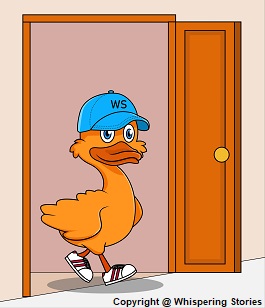
1) What’s your favourite food?
Rare steak, creamed spinach and crisp, thin chips. Plus red wine. There has to be red wine. I definitely have some vampire in the family.
2) If you had a box of crayons and you could only choose one, which colour would you choose?
Probably blue. I don’t really think of having a favourite colour but I can’t help noticing that all my clothes are blue. So there’s something going on there.
3) What movie could you watch over and over again?
It would be a Hitchcock. VERTIGO, perhaps. His films are so painterly and well-constructed, the pleasure of watching them only increases with repeat viewing. I’m also a total sucker for SILENT RUNNING, though. I do keep coming back to SF.
4) What would be the top song on your playlist?
Oh, god, this varies all the time! Whatever I just heard that won’t stop ear-worming me. Though whenever I want some serious noise in my life, I usually find my way back to HEARTATTACK AND VINE by Tom Waits, on volume setting 11. I do love Tom Waits. In fact, I quote him at the very start of LUCKY GHOST.
5) If you won millions, what would be your first purchase?
The FIRST thing would again, I’m sorry to say, be some form of alcoholic beverage. But following that, the thing every writer yearns for is a dedicated space to write in. So a really well-equipped studio, in some beautiful old Victorian industrial building, somewhere in central London, with a standing desk and a fabulous wireless sound system, and a bleeding edge Apple laptop. That’d do it.
6) A talking duck walks into your room wearing a baseball cap and sunglasses, what’s the first thing he says to you?
“Psst! Buddy, you wanna score some quack?”
You can find out more about Matthew Blakstad by visiting the website/social media sites below.
Author Links
www.matthewblakstad.com
@mattblak
Facebook
Goodreads
I would like to say a big thank you to Matthew Blakstad for sharing with us details of his writing life, and for a wonderful interview.

